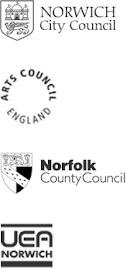Tuesday Morning
The first session of the writers salon took place in the Council Chamber. We were sat around like knights of the round table, or perhaps, Alderman passing parking legislation... but so much nicer than being in a lecturer theatre, all facing forward. The theme before us, Nature and Nation, with the "unacknowledged legislators" including poets, non-fiction writers, memoirists, fiction writers, and, best of all, multitaskers. Last night's debate, primarily on climate change, had seen the imagination take a little bit of a backseat, as the heaviness of science's worst predictions seemed to label the creative writer as being either a denier or a propagandist. The writer, I've always thought, can sometimes go underground when faced with politicians, economists and... yes, scientists. A few years ago there was a big splash about poets like Lavinia Greenlaw writing about science in their work, poetry apparently requiring a specific relevance to time and place...
...so the first job of the day, I think, was a bit of untangling, an unburdening, if you like of the expectation that writers could somehow be enlisted in some environmental Peace Corp. The messages here were far more subtle. Gretel Erhlich has spent many years travelling with the inuit, and she was never less than fascinating. It was the detail that stood out: the mythologies of the people; their belief that over the ice horizon, was simply more ice; even the insistence that they are modern people (fax machines, portable radios), living an ancient, and endangered life. The danger, of course, comes from the changes to the ice, where even in the coldest February, the ice hasn't the thickness to carry sleighs; not the cold, but the turbulent waters underneath causing it to crack and shatter. "Nation" here defined itself, not with flags and anthems, but with ice, with polar bears and reindeer, with finding and sharing food. I'm reminded of Thomas Hardy's "Woodlanders", an enclave community, that is still holding on to an ancient way; the difference being that here it's not "progress" that is destroying the life, but the effects of progress. Her most important point, I think, iterated from the floor, was that if we lose these people and their lifestyle we lose an echo of our own past life, and with it the skills, the understanding that we might just need in the potentially turbulent future.
It wasn't so much that the naturalist and nature writer, Richard Mabey, had a different view, as a different subject. He talked more about the need for us - for writers - to have, and he put it bluntly, a less colonial attitude to nature. The emphasis on writers is to tell the truth, to get it right. Neither to sentimentalise nature by our reference to it as "our" landscape, nor to denigrate it when it's less than beautiful. It is not the snow leopard or the elephant whose extinction that will be unforgivable, but the insect life, the microbe life, the plant life. Extinction, we were reminded, is a relatively modern concept - not a comfortable one for theologians, I guess, and even problematic for Darwinists, with their emphasis on "natural selection."
How then to reconcile these complex messages? Mabey felt, not uncontroversially, that there was a duty now on writers to "get it right" when talking about nature; that using the moody landscape as a "prop" for our own melancholy was no longer enough. Teasing out how all writers - any writers - can take on board a responsibility that seems counter-intuitive to the creative process, was one of the day's - so far - unanswered questions. Mabey's other points perhaps got lost in the complexity - and politicisation - of the argument. His initial point had been how for much of his life he'd wanted to "own" a landscape, one where he'd lived for so long, and yet when illness led to him leaving, it also freed him. Our own "private" nations are adaptable, it seems, if we're willing to accept a different kind of citizenship. When owls arrived in his village, he had to dump his preconceptions of owl life, and think again, on their terms. This, it was agreed, was no longer a scientists' job; perhaps a writers.
I think everyone in the room will have had more things that they didn't say, than did, as both Mabey and Ehrlich, ably chaired by Jon Cook, were giving us the anti-Powerpoint, a polemical essay. Emerson, Dickens, Shakespeare, Stevens, Sebald, Thoreau, Rousseau, Wordsworth, Clare and Ruskin were mentioned in despatches, amongst others. Literature - great literature - changes us by letting us see the world through its prism, understanding more in the process. Though certain writers can appear to be express universal thought (wither the Lakes without Wordsworth for instance?) it is their individual sympathy and empathy (John Clare, suggested Mabey) that comes first. If, as Adam Zagajewski, maintained, the 20th century writers state of being was primarily that of "exile" - what of the 21st? I suggested that both of our "case studies", if you can call them that, the inuit community of Greenland, and the threatened Norfolk coast, were both, in their different way "margins", but ones which were increasingly valid to our understanding of what comes next.


No comments:
Post a Comment